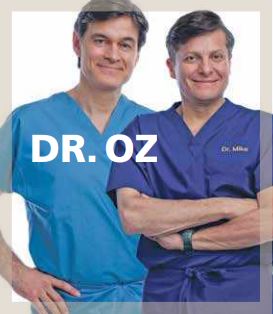
Women’s health, beyond reproductive medicine, has long been the neglected stepchild in clinical trials and in clinical practice. That is changing rapidly as organizations from the Centres for Disease Control and Prevention and Food and Drug Administration to university research centres and medical schools scramble to include sex differences in lab studies, trials and textbooks. So we’re going to share three important insights into women’s health that you might not have heard about and need to apply to your life today!
1. Taking calcium supplements may be risky. Almost 70% of older females report taking them, but they may not know that the supplements can make women who have had a stroke or who have white matter lesions (a marker for cerebrovascular disease) up to seven times more likely to develop dementia. The groundbreaking research that uncovered this was published in Neurology in 2016.
The study followed 700 dementiafree women ages 70 to 92 for five years. Almost half of women who had had a stroke and took the supplements developed dementia, while only about 8% of women who had had a stroke but did not take supplements developed cognitive problems. And women with white matter lesions who took supplements were three times as likely to develop dementia as women who had white matter lesions and did not take supplements.
Adequate calcium intake is essential for healthy bones and teeth, for muscles to function and for nerves to carry messages. Calcium is also used to help release hormones and enzymes that keep your body going. But, the researchers note, “calcium from food affects the body differently than calcium from supplements and appears to be safe or even protective against vascular problems.” You’re aiming for 1,000 to 1,200 milligrams daily, and Dr. Mike says that supplements of up to 600 milligrams a day should help you hit that mark without a risk.
Here are calcium-rich foods to enjoy:
— One tablespoon sesame seeds has 9% of the recommended daily intake.
— Three ounces of canned salmon with bones, 21%.
— One cup cooked white beans, 13%. — One ounce of almonds, 8%.
— One cup cooked collard greens, around a quarter of the recommended daily intake.
2. Your mammogram could clue you in to your risk for heart disease. Digital mammograms reveal more than your risk for breast cancer. They can spot calcium deposits in your breasts’ blood vessels. Research estimates that around 10% of women in their 40s have what’s called breast arterial calcification and around 50% of women in their 80s do. Preliminary studies indicate that BAC lets you know you are at an increased risk for heart attack, stroke and heart failure. So when you get your mammogram, ask specifically if you have BAC. If you do, schedule an appointment with a cardiologist to assess your risk. Changing your diet, taking a statin, lowering your blood pressure, getting more physical activity — those changes can reduce your risk for heart attack and stroke by 50% or more.
3. Being a woman increases your risk for diabetes-related complications. In fact, it quadruples your chances of diabetes-associated heart disease, while it only doubles men’s chances. In addition you’re at greater risk for other complications, including blindness, kidney disease and depression, than men are.
That’s why you want to pay extra attention to maintaining an A1C of 5.7 or less, an LDL of 70 or lower and a healthy weight. Stay very physically active (300 minutes a week); maintain a blood pressure of 115/75 and do not smoke anything. Also important: Get regular eye exams and dental checkups. One major study found that adopting these lifestyle changes and hitting those goals can reduce your risk of eye and kidney problems by 35% to 76%.
It’s important that you take charge of your health, and make sure your health care providers pay attention to the newest insights into sex differences in diagnosis and treatment of many conditions and diseases.
Mehmet Oz, M.D. is host of “The Dr. Oz Show,” and Mike Roizen, M.D. is Chief Wellness Officer and Chair of Wellness Institute at Cleveland Clinic. To live your healthiest, tune into “The Dr. Oz Show” or visit www.sharecare.com. (c)2020 Michael Roizen, M.D. and Mehmet Oz, M.D. Distributed by King Features Syndicate, Inc.
